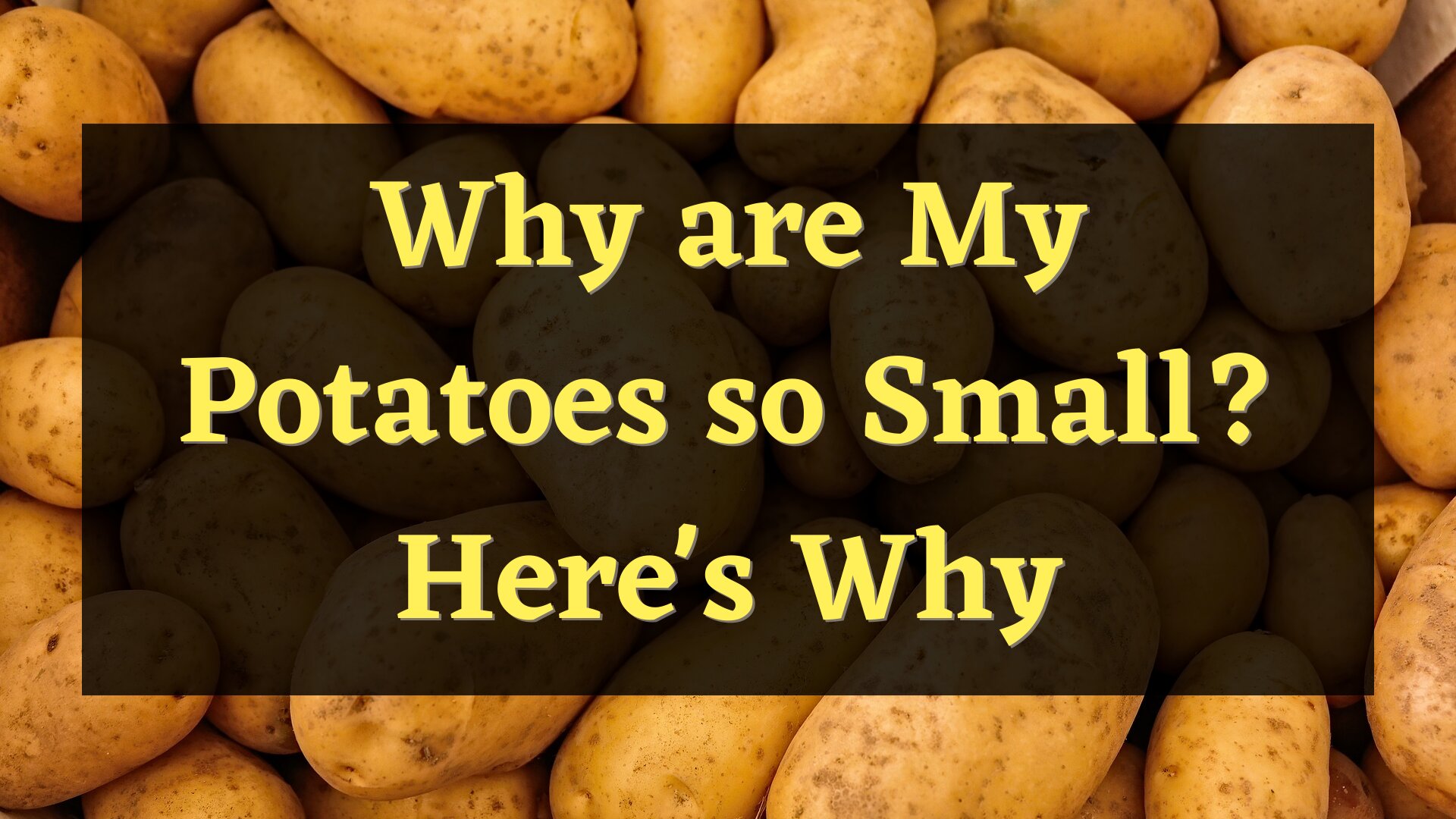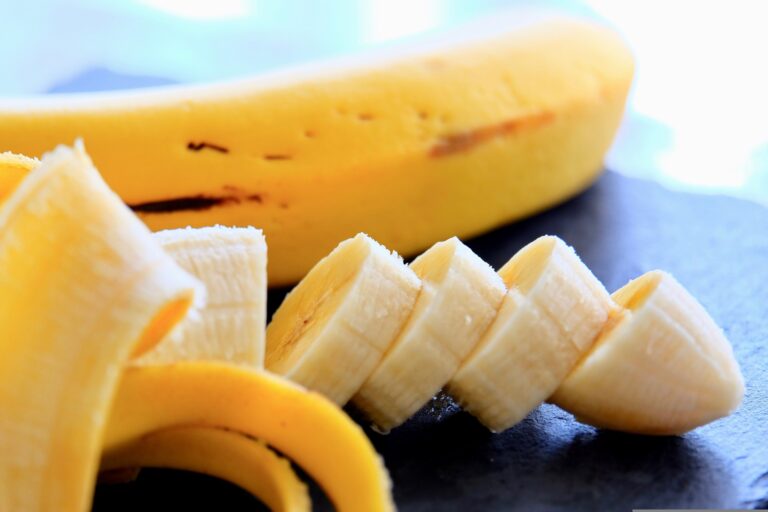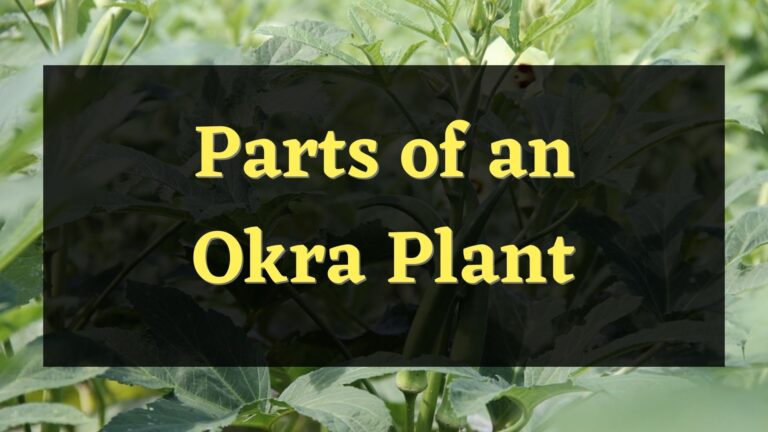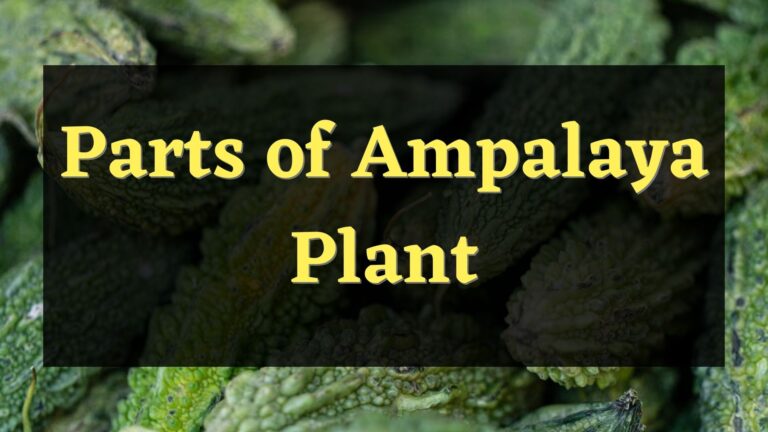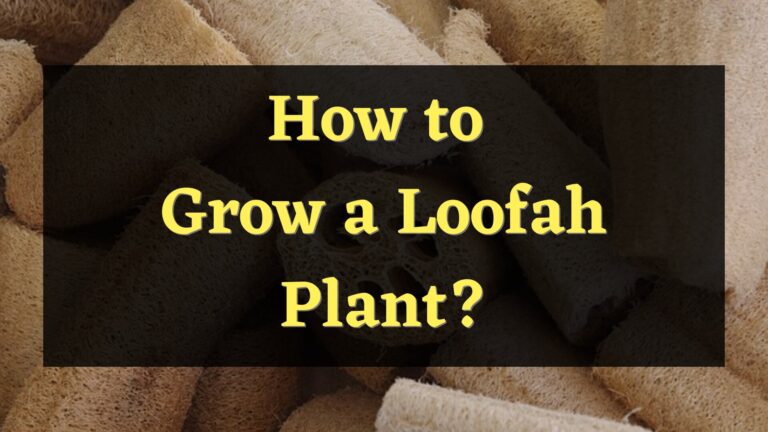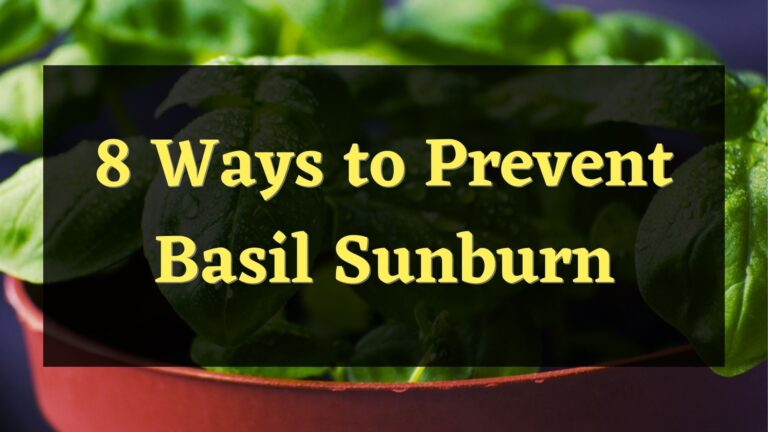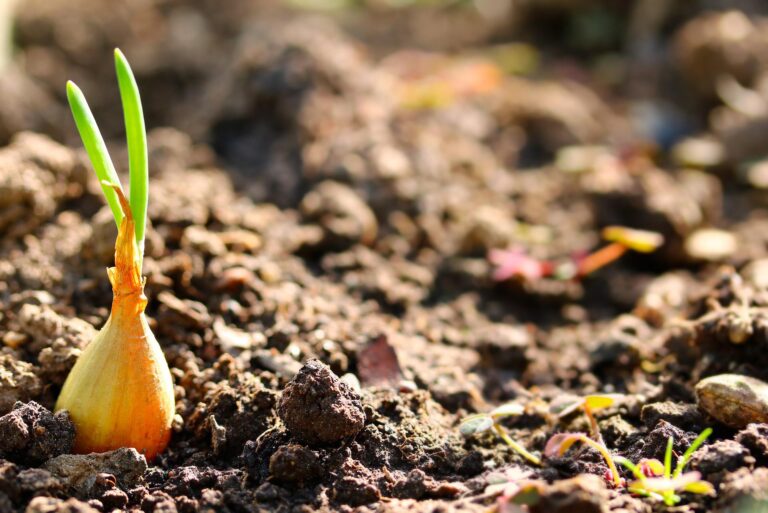There are times when you grow big potato plants that produce small tubers once dug up. Your potatoes are so small for a variety of reasons. Small potatoes are oftentimes caused by lack of sunlight, insufficient watering, nutrient insufficiency, extreme temperatures, or harvesting them too early. However, some varieties of potatoes will naturally grow smaller than others, and there are even cases where potatoes on one plant can also vary in size.
Reasons why are potatoes so small
There are many variables that lead to your potato plants producing small crops. These variables differ depending on how well you cared for your potato plants. Here are some of the reasons why your potato plants produce small crops:
Lack of Sunlight
Potato plants require full sunlight every single day. Depending on who you ask, “full sunlight” usually means 6 to 8 hours of direct exposure to sunlight per day. Your potato plant will not be able to grow properly if it does not receive enough sunlight. A lack of sunlight means much less photosynthesis, resulting in your plant producing less energy compared to having adequate sunlight.
If the potato plant’s vines and leaves do not produce enough energy through photosynthesis, the plant won’t have enough starches to put into its tubers. This will lead to smaller potato sizes, or worse, the plant won’t be able to produce potatoes at all.
Put your potato plants in a location where they are able to get full sunlight during the day. Avoid planting them near tall plants that can block the sunlight. Trimming the branches of nearby trees is also recommended if your potato plants are surrounded by trees. If you don’t have enough room and need to plant your potatoes closer to your house, plant your potato plants on the south side of your house.
And if you have already planted your potato plants and they produce small potatoes, you might want to transfer them to another location.
Improper Watering
After knowing that a potato plant requires a lot of sunlight, the next thing that you would need to look at is the water you give your plant. Aside from needing full sunlight, potatoes also need moist soil during their whole growing season, especially when their tubers are actively developing and growing. Without sufficient water, your potato plant will ultimately dry out, and in more extreme circumstances, a lack of water will prevent them from absorbing nutrients from the soil. This scenario will prevent your potato plant from growing tubers.
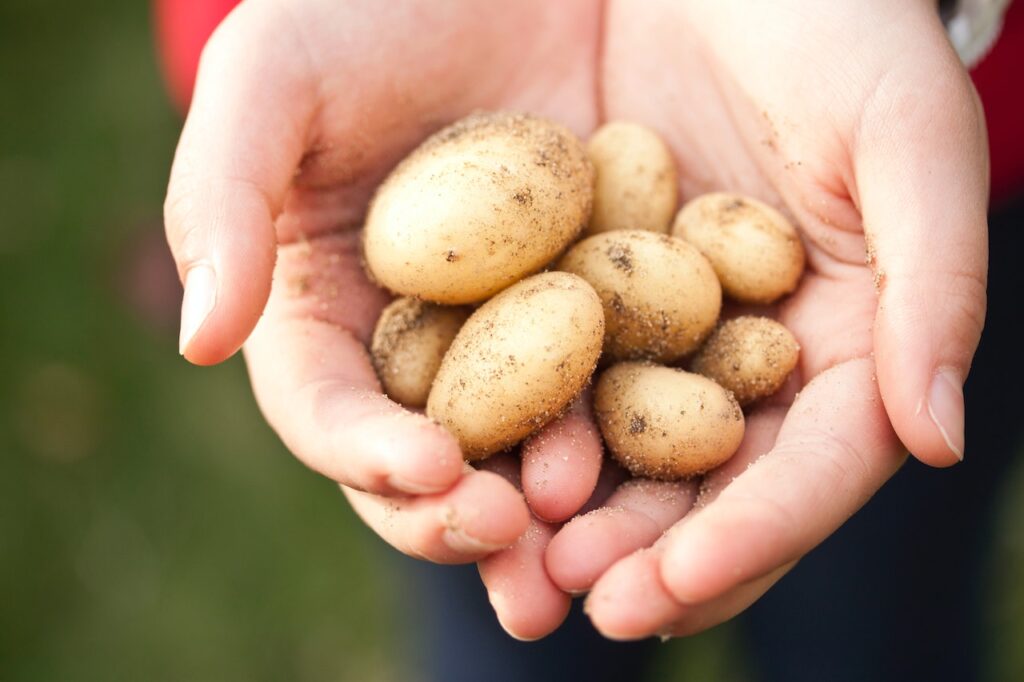
If your potato plants were frequently wilted and the soil was dry throughout their entire growing season, a lack of water would eventually result in them producing small-sized potatoes. Fortunately, there are a variety of ways to avoid this kind of problem, even if you do not have enough time to water your plants every day. Adding compost can enhance the soil’s ability to absorb and store more water while also providing the nutrients that your plant needs. Not only that but adding compost can help attract worms and bacteria that are beneficial for your garden.
Nutrient Deficiencies
A lack of nutrients will also result in the slowing down of the tubers’ growth, leading to small potatoes. The soil’s pH level plays a big part in your plant’s nutrition. Some necessary nutrients will be unavailable to your potato plants if the pH level of the soil is too high or too low. Remember that the soil pH that is adequate for potatoes is between 6.0 and 6.5, which is slightly acidic.
Even if your soil is healthy and the pH level is ideal, a nutrient deficiency might still arise if your plants are overcrowded. If you grow your potato plants too close together, they will start competing for water and nutrients.
High Temperature
Although potato plants require a full amount of exposure to sunlight, extreme heat can also result in your plants producing small potatoes, even if they get the right amounts of water and nutrients. Potatoes are considered a cool-weather crop, therefore high temperatures will reduce the number of tubers that form. It also reduces the size of the tubers that will grow into potatoes.
Planting your potatoes in a sunny location, on the other hand, will cause the soil to heat up considerably faster and quickly achieve higher temperatures. This is why there are a few things that you can do to keep them cool during the summer while also encouraging fresh tubers to form. You can try using cold water whenever you water your potato plants to let the plant and soil cool down at the same time, or shade your potato plants with a cloth or row covers to give them some shade during the hottest part of the day.
Early Harvesting
And lastly, harvesting the potatoes too early will obviously result in their being small in size. A sign that you harvested your potatoes too early is very easy to notice, you can try rubbing your potato’s skin and if it peels off easily, then you have harvested them prematurely.
If you harvest your potatoes too soon, the plant will not have the time to provide the energy that its tubers require. The potatoes will remain small due to the lack of energy. The best thing to do is to wait for them to a little bit more to mature if you want them to get bigger. Your potato plant will have enough time to deliver adequate energy or starch to its tubers two to three weeks after its foliage has withered.
Conclusion
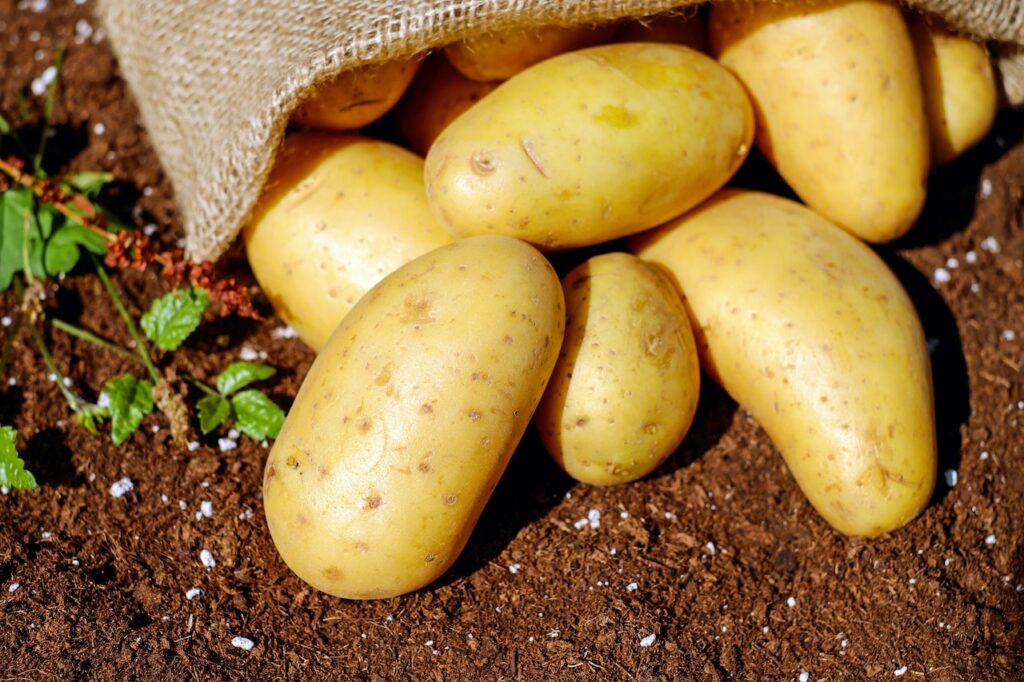
There are numerous reasons why our potato plants are producing small potatoes. Even though the reasons are different, the result will always be disappointing. The only good news is that the root of this problem is simple and can be fixed very easily. The only thing that you would need to remember is to take care of your potato plants properly and give them everything that is necessary for them in order to thrive and produce larger tubers.
Meet Tomas Clayton, a seasoned plant gardener who has been passionate about horticulture since he was a child. Tomas John developed a love for the natural world and a strong appreciation for the beauty of plants while growing up on a farm.

